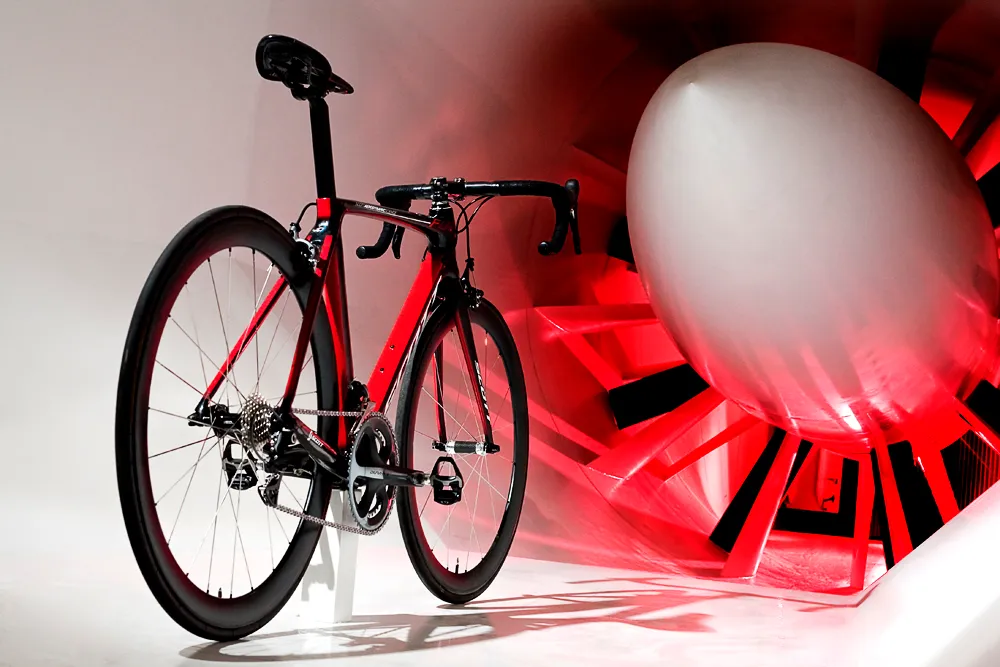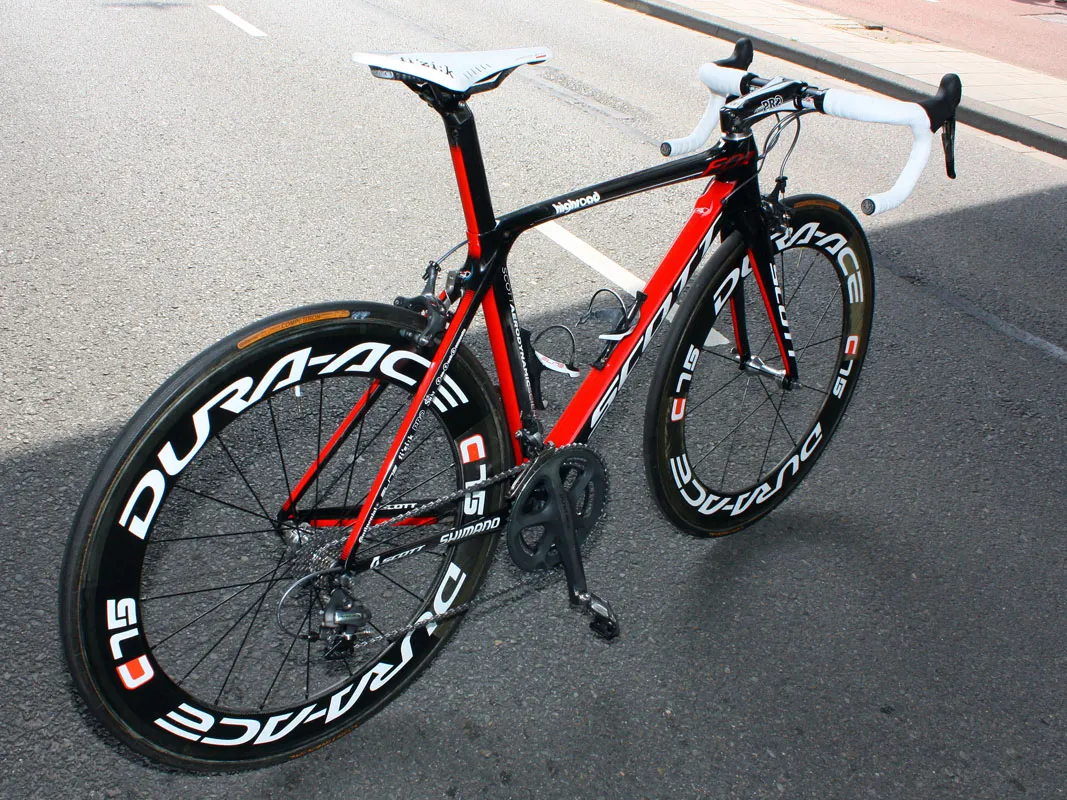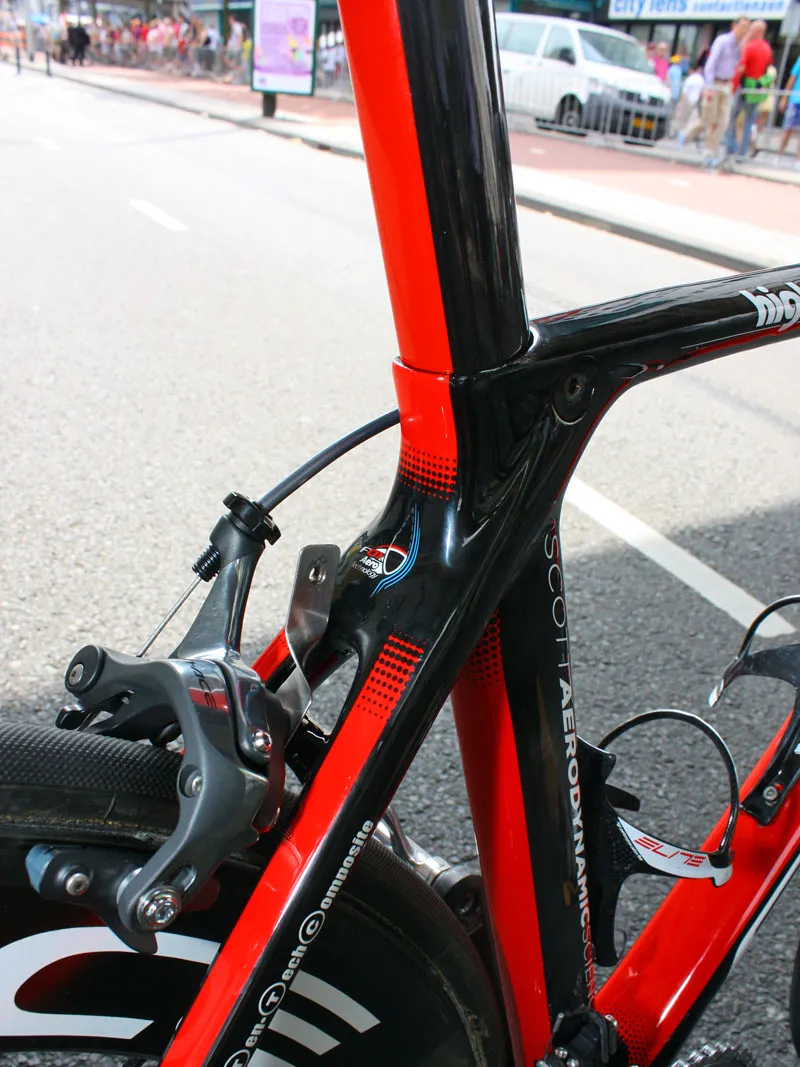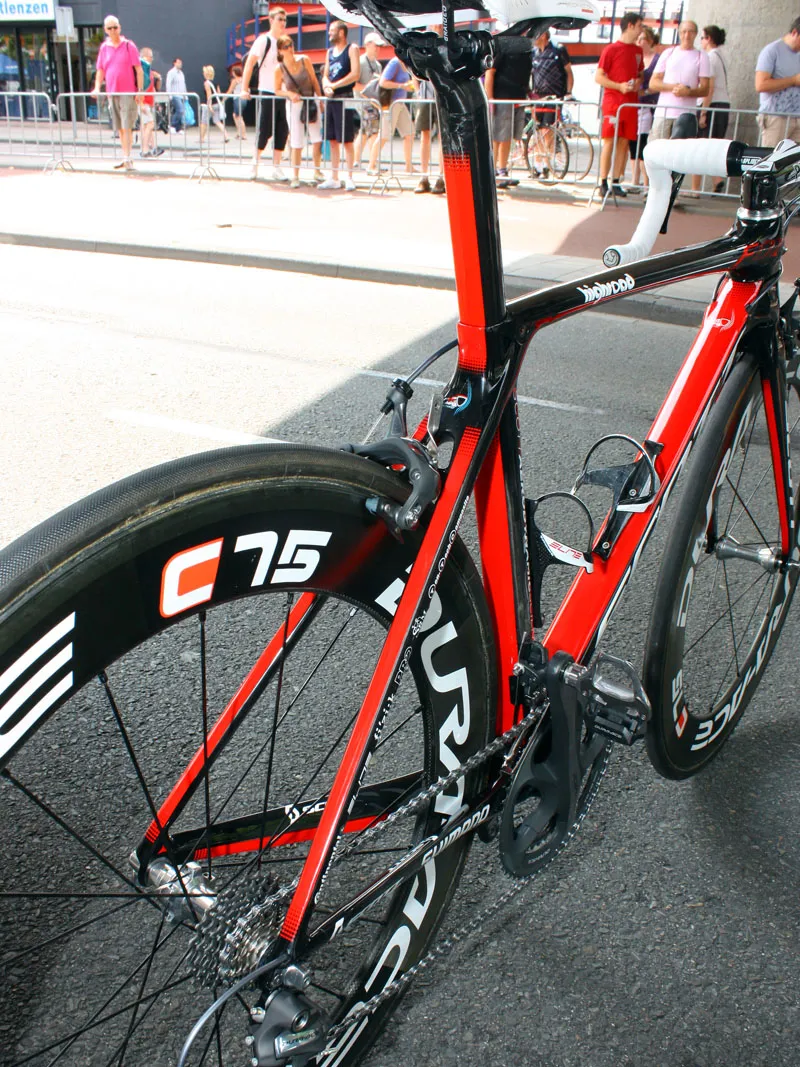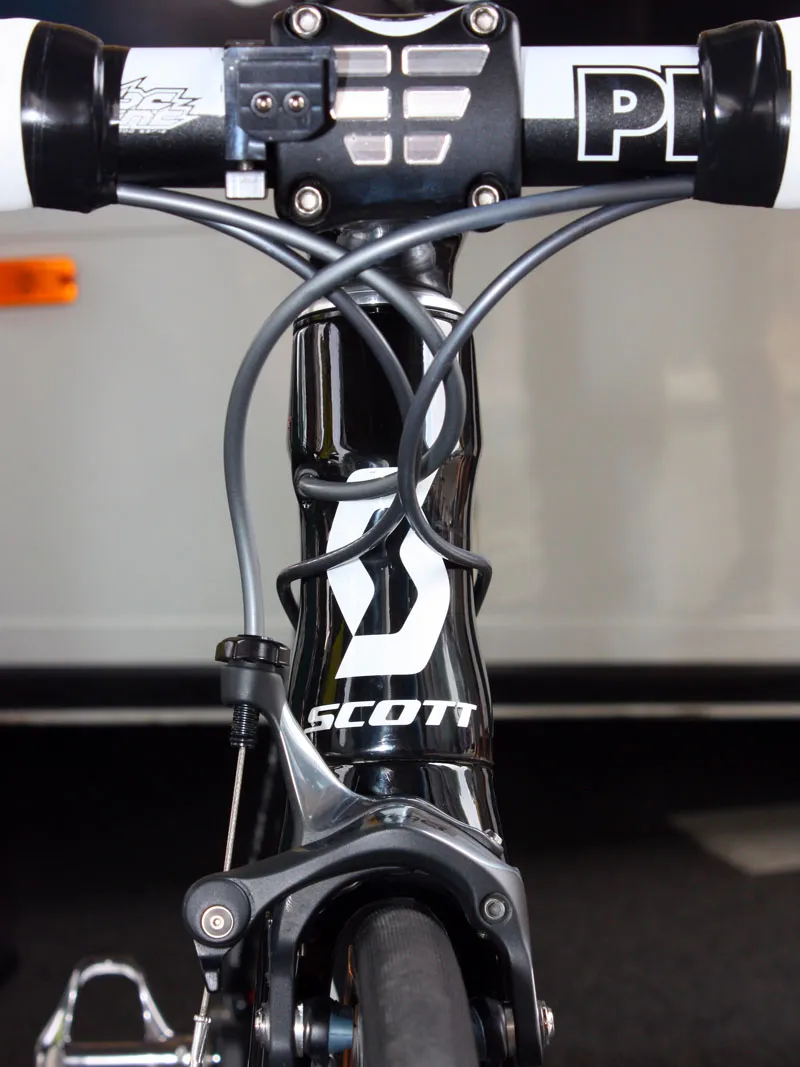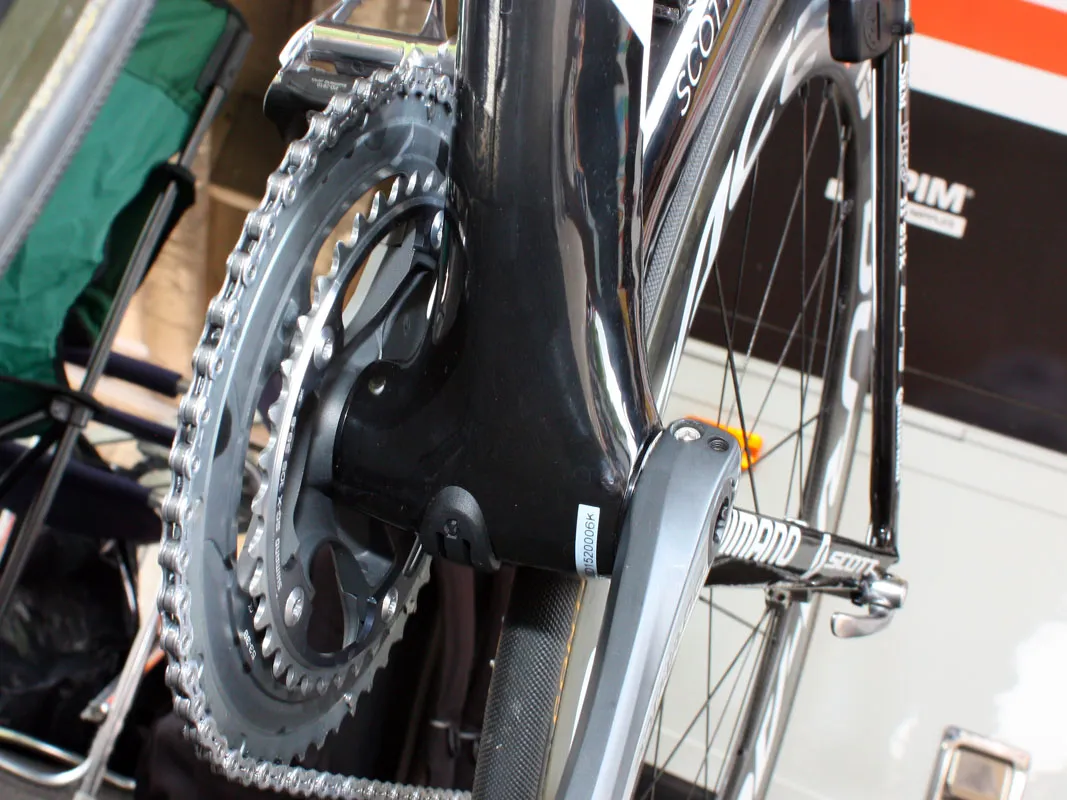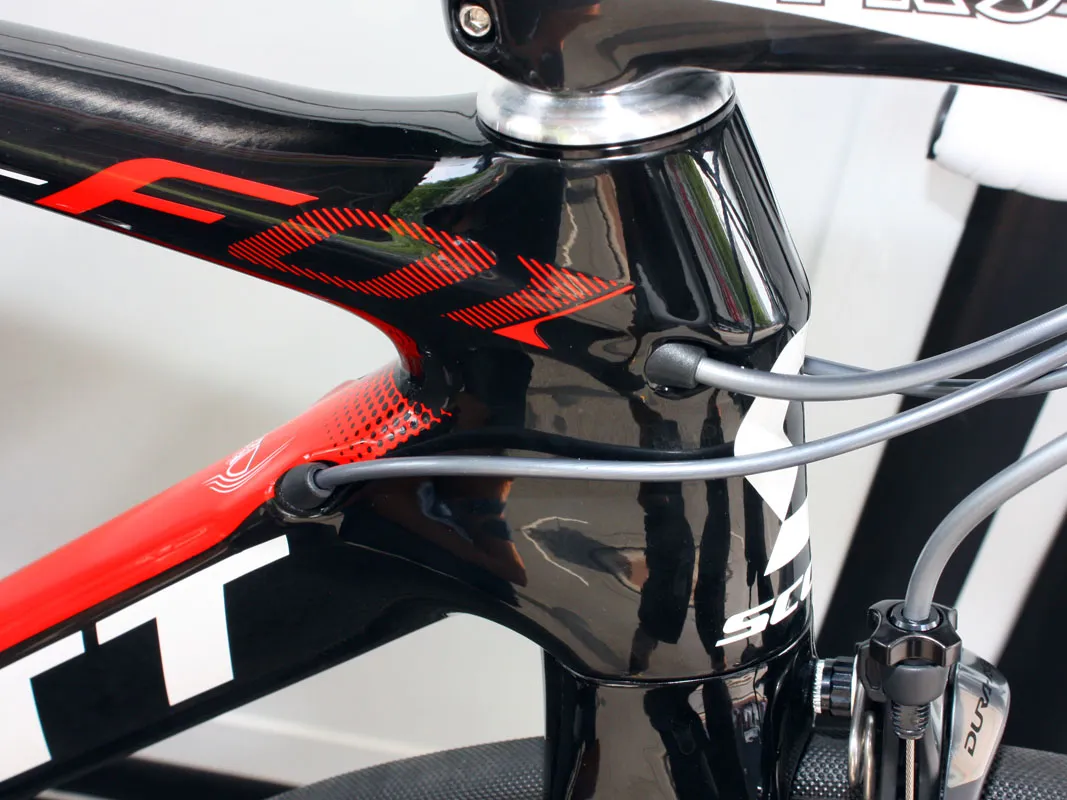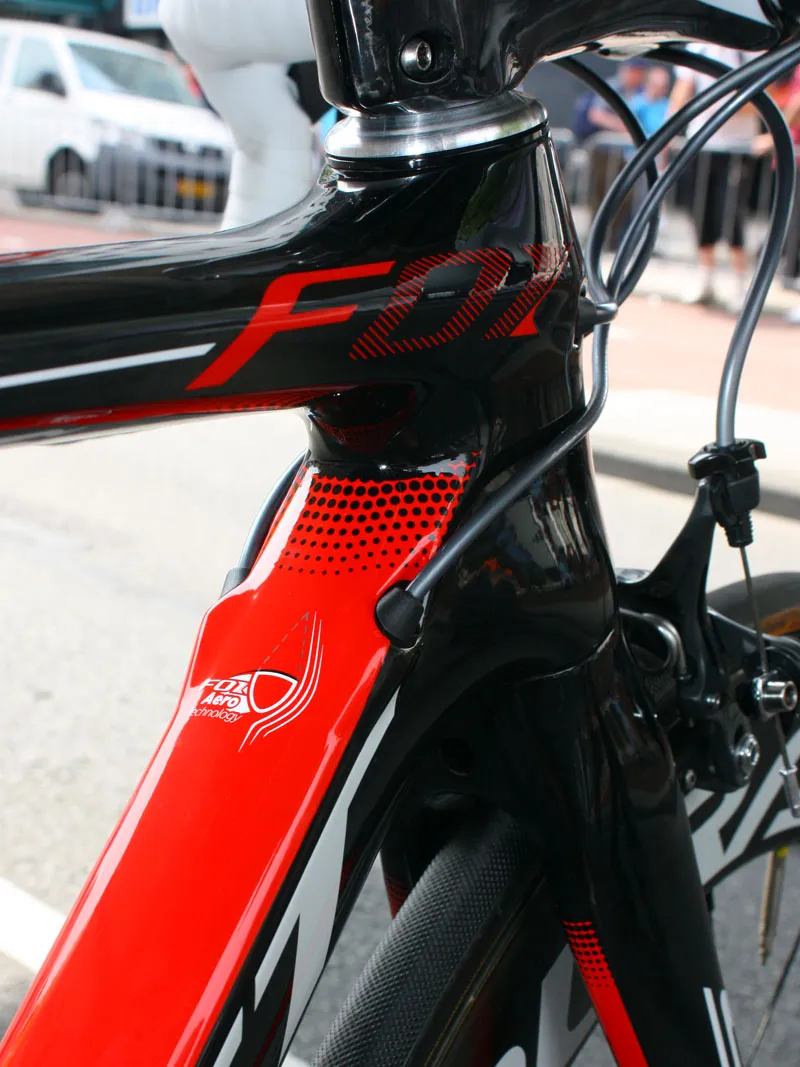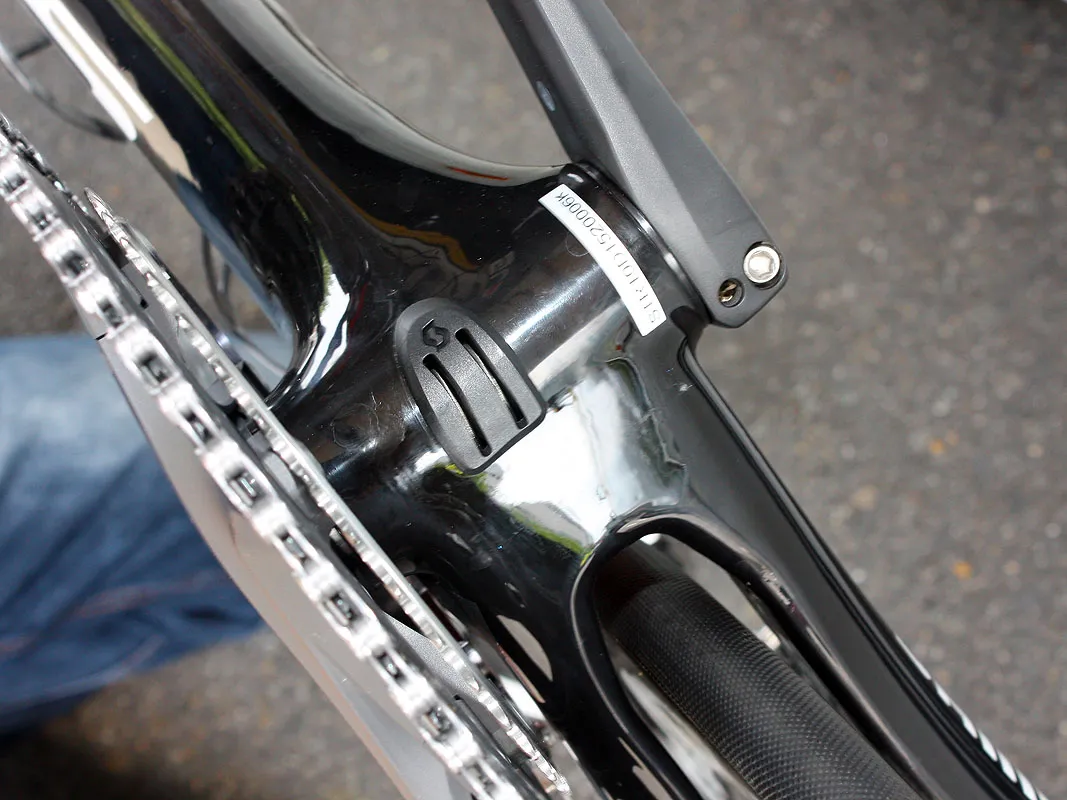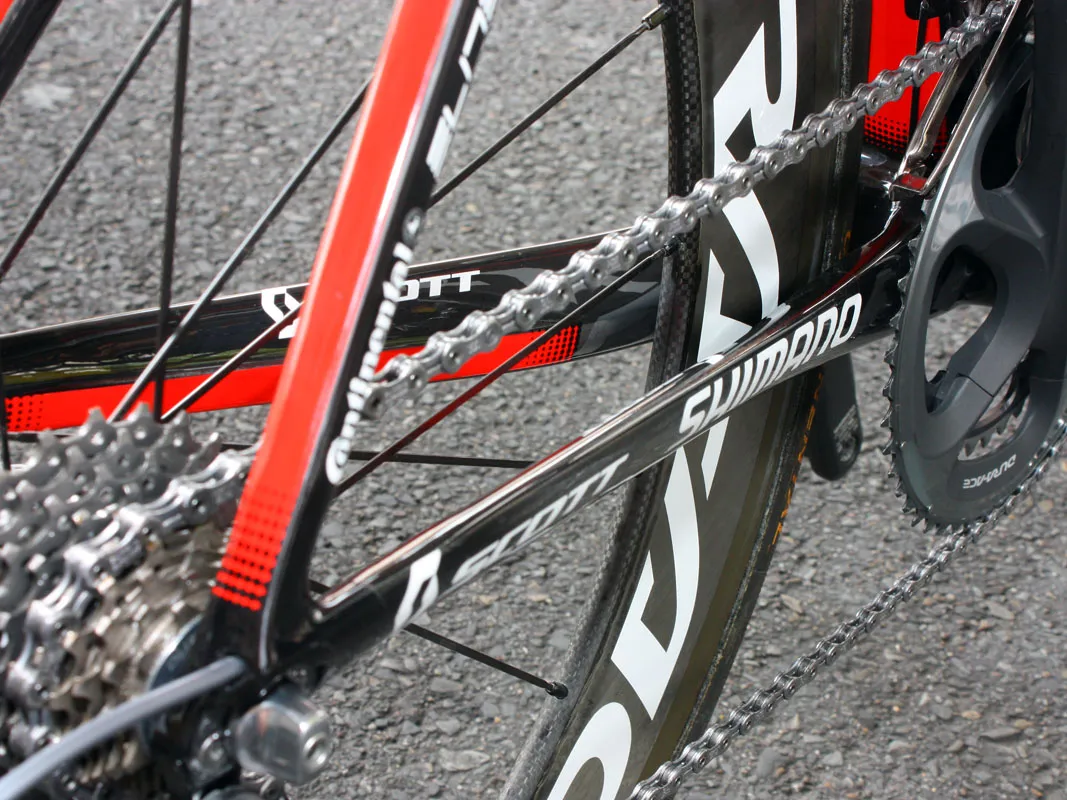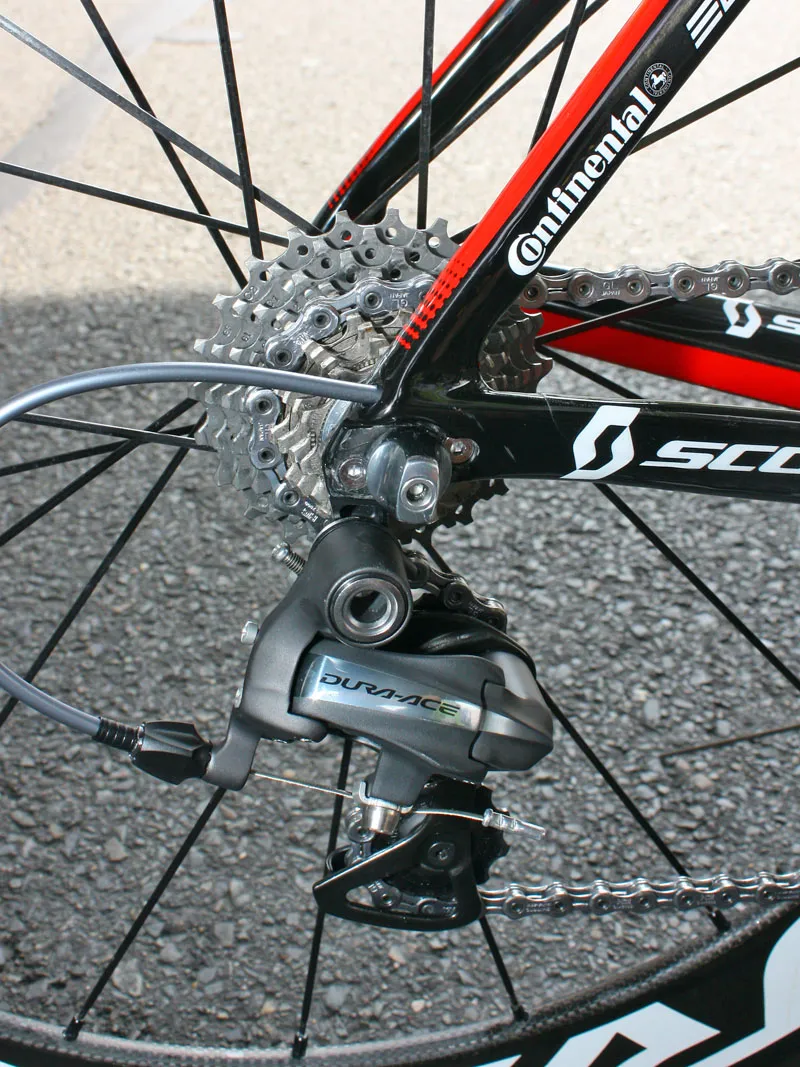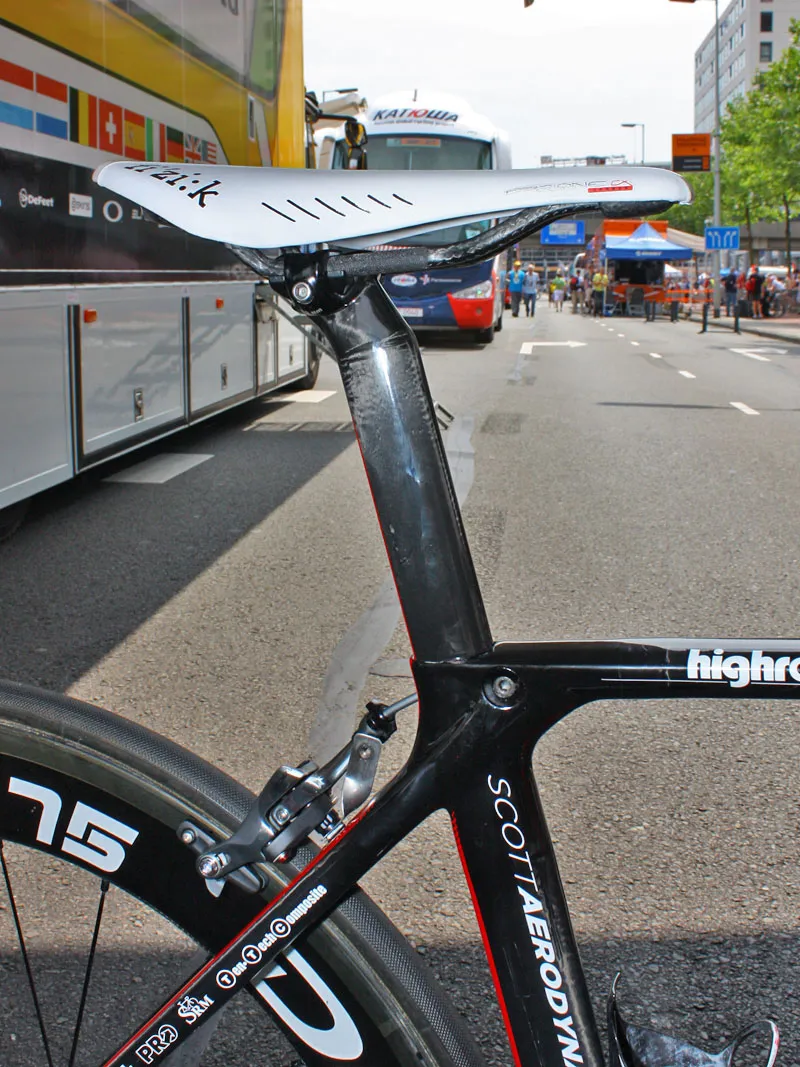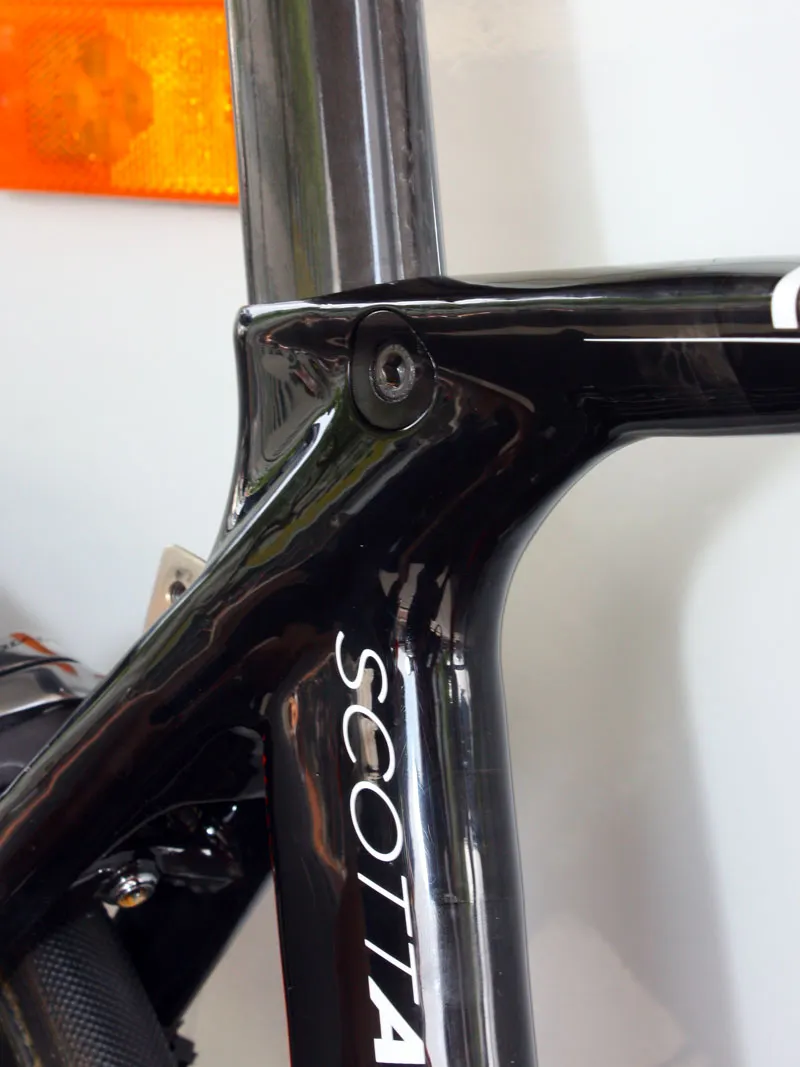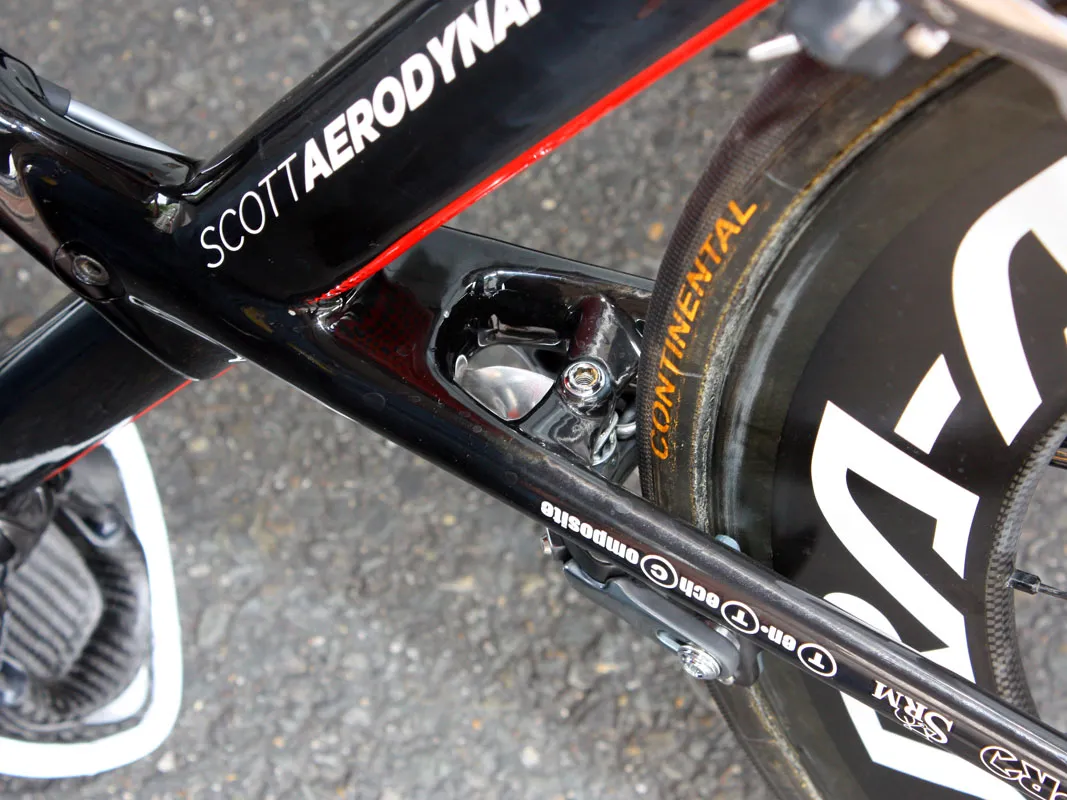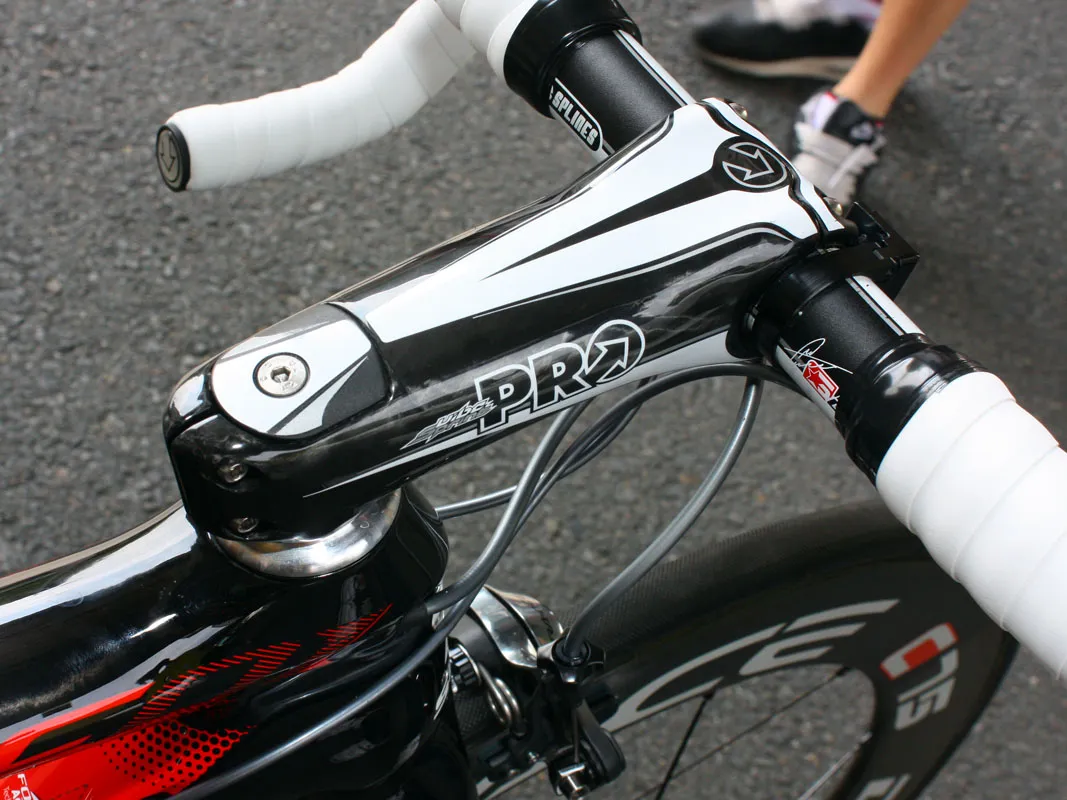HTC-Columbia bike sponsors Scott are supplying team riders with a new aero road bike in their quest for glory at this year's Tour de France.
Scott say the new frame – codenamed 'Project F01' for now – combines the best attributes of their current Addict road and Plasma 3 time trial/triathlon bikes, presumably making for a potent breakaway or sprint weapon where speeds are higher than average and riders are exposed to the wind.
According to Scott, the Project F01 weighs just five percent more than an Addict (while retaining the same stiffness) yet frame drag is reduced by 20-30 percent.
That equates to an impressive 840g bare frame weight (or a 1,277g fuselage weight with frame, fork, seatpost and clamp) that should satisfy even finicky climbers but also a significant 20W power saving at speed (based on a 300W output). According to Scott, this means the Project F01 is not only faster and more aerodynamic than either the Cervélo S3 or Felt AR but also substantially lighter and more efficient under power.
The new machine doesn't look all that slippery at first glance. Rather than use conventional airfoil profiles on the Project F01 – which can often be heavy and poor-riding – Scott are using a truncated teardrop shape with roughly a 3:2 aspect ratio that, they say, offers a better compromise between stiffness-to-weight and aerodynamics.
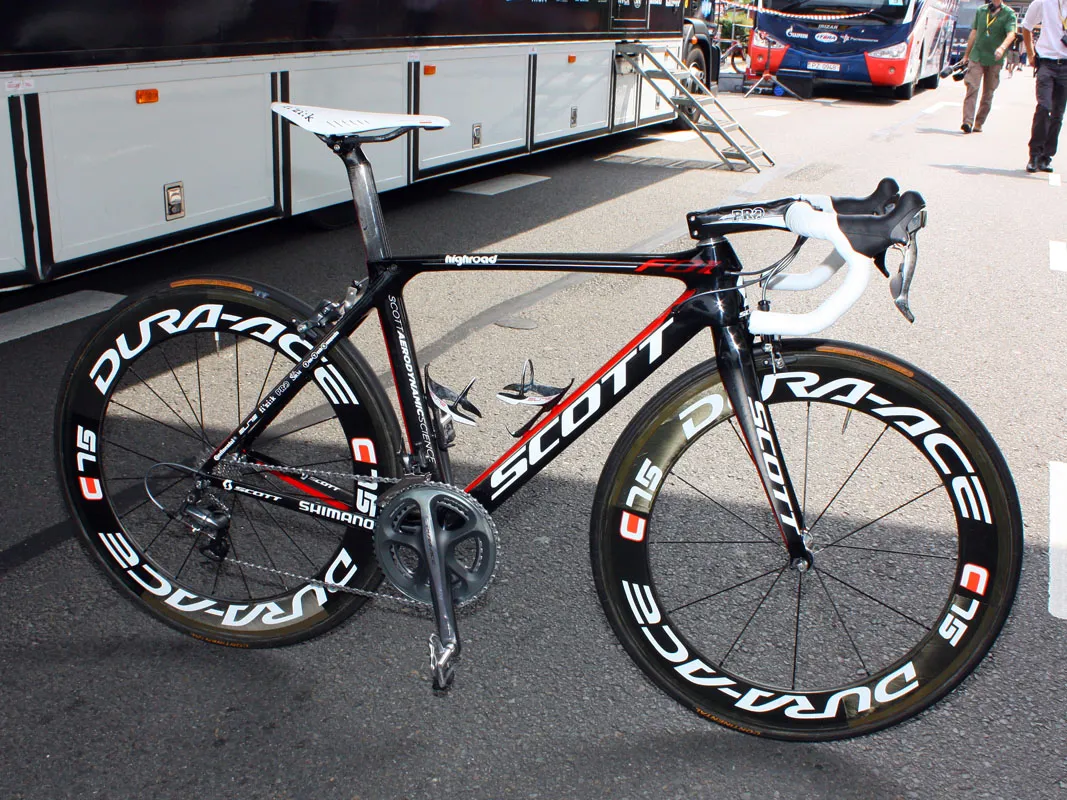
The red 'cut lines' on this test mule indicate where airfoil trailing edges had been removed
Though similar in theory to the Kamm tail concept that Trek have successfully put to use on their Speed Concept, Scott's Project F01 removes more trailing edge material and uses a more rounded 'cut line' that is specifically shaped for each tube.
In addition to using far less material than a typical airfoil, Scott's 3:2 profile can be made far wider without breaking UCI guidelines for section depth and makes fewer sacrifices in rigidity. Scott also say the less aggressive shape yields better drag numbers at higher yaw angles and produces a far better ride quality, too.
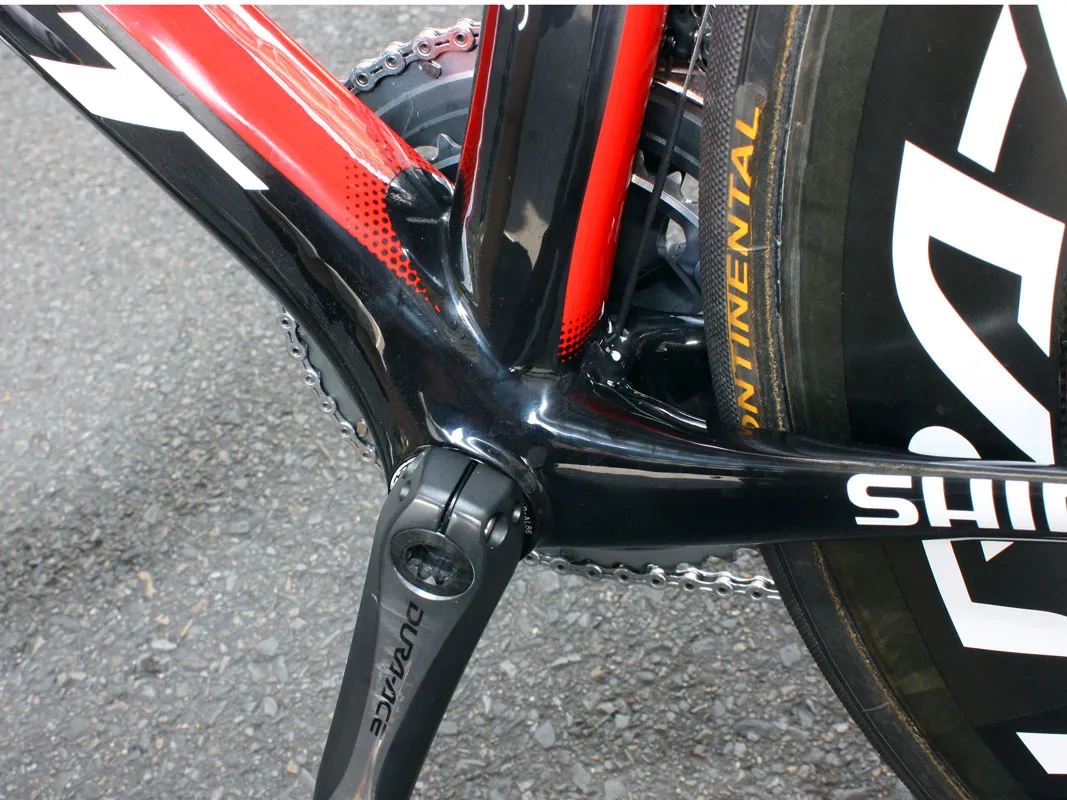
Scott say absolute stiffness on their new Project F01 is actually higher than that of the Addict
Additional features include Shimano Dura-Ace Di2-compatible internal cable routing (with no additional weight or friction versus a conventional external setup), a proprietary 3:2-profile carbon post with a Ritchey 1-Bolt head and neatly integrated binder mechanism, PF-BB86 press-fit bottom bracket cups (and finally correspondingly wider down tube dimensions and chainstay spacing) and carbon dropouts.
There's also an all-new carbon fork with a tapered 1-1/8 to 1-1/4in steerer tube. This fork directly incorporates the lower bearing seat into the mould for smoother – and thus stronger – fibre paths, and the lower bearing presses directly into the head tube with no additional cup required. The upper 1-1/8in bearing still uses a conventional internal-type aluminium cup, though.
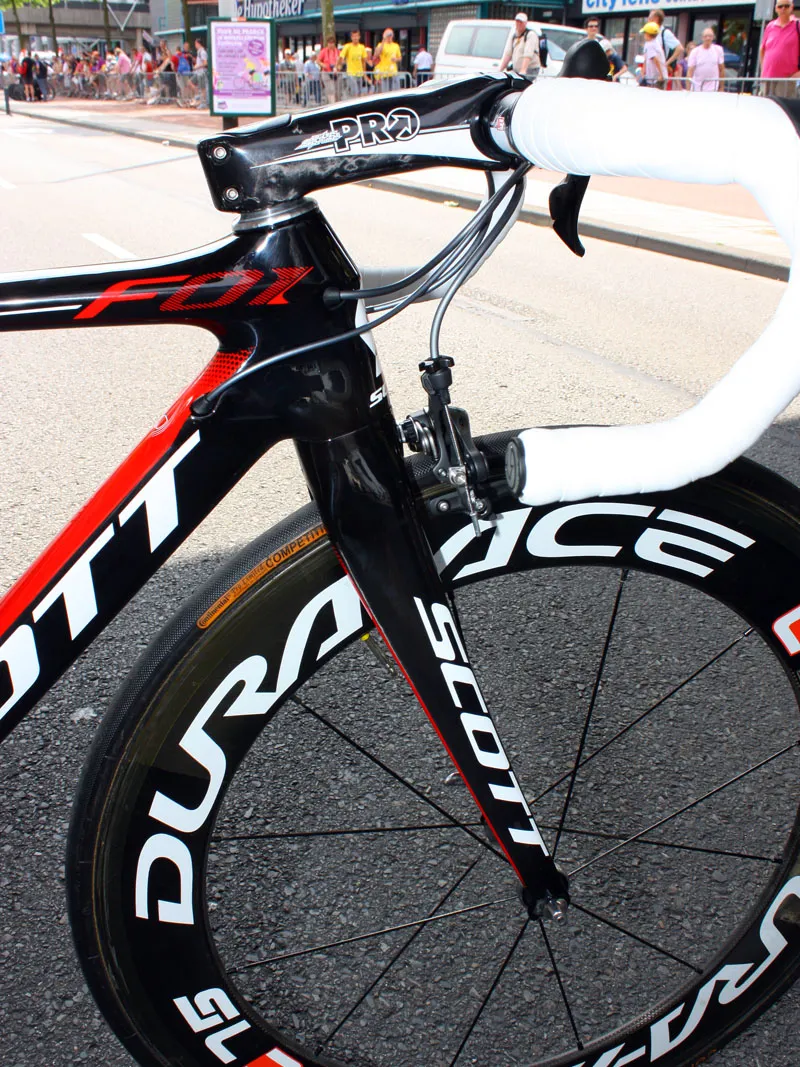
Scott equip the new Project F01 with a tapered 1-1/8 to 1-1/4in all-carbon fork.
For now, Scott say the Project F01 is still a work in progress and there's no firm release date or target price. Scott team equipment manager Hermann Pacal says it'll almost certainly be a 2012 model year product, and the company may even offer a very limited release as a 2011 bike.
Scott marketing and PR director Adrian Montgomery says the development of an aero road bike (along with a new time trial bike, which has already been done with the Plasma 3) was a specific contract demand of team owner Bob Stapleton, who has been an outspoken proponent of providing his riders with the best possible tools.
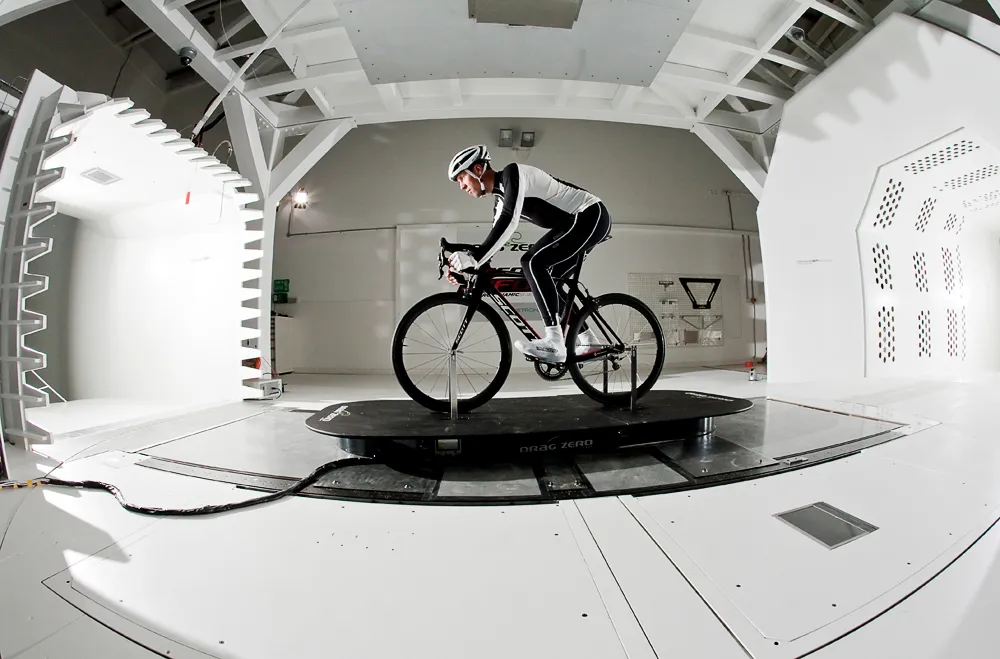
Testing of the Project F01 was done at the Mercedes-Benz Grand Prix wind tunnel
Montgomery wasn't clear on exactly which riders would be using the new bike in this year's Tour, though one key rider is a virtual certainty – star sprinter Mark Cavendish has already given the Project F01 his stamp of approval and the team have even prepared a specially painted model that they were to unveil at Stage 1.
Regardless of the team's decision (we'll know soon enough), consumer market demands will likely win out and, based on Scott's previous Plasma 3 project, we're guessing the Project F01 will make its way into the company catalogue – almost certainly with a catchier name – as a 2012 model year product.
